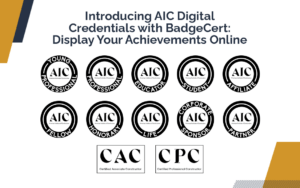An unfortunate reality for the construction industry is that disputes continue to be an issue. Many of these issues are tied to disputes over contracts that can be tied back to a lack of ethical dealings between parties.
In fact, we recently encountered a sobering industry statistic that the average cost of disputes rose from $30.7 million in 2019 to $54.3 million in 2020, an increase of 77% from one year to the next. The report noted that one of the central themes was a lack of “proper contract administration.”
Contractual issues have long been problematic for the industry. That’s why it’s important for the industry to advance its commitment to ethics at the beginning of the process, which will help reduce the frequency and cost of disputes at the end of the process.
To take a positive step forward, it’s important to review some construction ethics examples that will help us advance our collective appreciation for ethics during the preliminary stages of bidding and contract formation.
Construction Ethics Examples at the Bidding/Contract Stage
Contractors have a moral and ethical obligation to support the owner’s interests. That’s why a contract exists to create a healthy business relationship that defines the obligations that each contracted party must deliver upon. The more that contractors buy into their responsibilities to align with the needs of the owner, the more the industry can move forward.
Let’s review common ethical issues that can undermine the owner-contractor relationship. This way, your company can take the appropriate steps to eliminate any unethical practices and strengthen your commitment to fair dealings with owners.
1. Bid Shopping
Bid shopping is a common unethical practice of trying to increase profit at the expense of the owner. What typically happens is that after a contract is awarded, the contractor will contact several subcontractors of the same discipline in an effort to reduce the previously quoted price. However, the scope of work remains the same as was originally bid.
– Bid shopping is a violation of the ASPE Code of Ethics (Canon 5), which states that professionals “shall establish guidelines for setting forth prices and receiving quotations that are fair and equitable to all parties.”
2. Bid Peddling
Bid peddling occurs when a sub-bidder approaches a general contractor who has been awarded a project with the intent of voluntarily lowering the original price below the price level established on bid day. Again, this unethical practice attempts to undercut the owner to increase the contractor’s profitability.
– Bid peddling is a violation of the ASPE Code of Ethics (Canon 7), which states that “this is a breach of moral and ethical standards.”
3. Bid Rigging
Bid rigging occurs when a group of contractors conspires together to defraud the owner and share profits. An owner will typically require each contractor who bids on a project to sign a non-collusive affidavit that is designed to eliminate big rigging.
The non-collusive affidavit form is a notarized statement stating that a submitted bid was created without any agreement or cooperation with other bidders for the project. It must be signed by each contractor and submitted in the bid package at the beginning of the process.
– Bid rigging is a violation of the ASPE Code of Ethics (Canon 8), which states that professionals “shall not enter into any agreement that may be considered acts of collusion or conspiracy (bid rigging) with the implied or express purpose of defrauding clients.”
4. Buy Out
Many contractors attempt to insulate themselves from the competition by utilizing the “buy out” tactic. This is the process of scoping the competitive bidders for apples-to-apples scope. This process, itself, is not considered unethical.
However, this practice becomes unethical when used along with one of the three previous unethical practices (bid shopping, peddling, or rigging). Contractors that utilize this tactic should tread carefully so as not to undermine the owner in the beginning stages and to prevent a contractual dispute later on.
5. Front Loading
Front loading occurs when a contractor places all or the vast majority of their overhead costs and profit on the first line item of the Contractors Bid Breakdown form. Typically, this is done on Unit Price Contracts for public projects such as roads, bridges, dams, river control, water treatment, and civil projects.
Front loading is considered illegal on most public projects. It is also considered unethical because the contractor is attempting to recover all of their overhead expenses and profit before they are entitled to receive payments for services provided.
Therefore, the best practice is to utilize the title “Mobilization” on the first line item for a Unit Price Contract. This allows each contractor to recover their start-up costs at the beginning of the construction project without front-loading their bid to deceive the owner.
Let’s Solve These Construction Ethics Challenges
The American Institute of Constructors (AIC) supports construction managers, executives, individual workers, and other construction professionals by providing resources that help constructors understand how to navigate complex ethical issues.
If you regularly encounter ethical dilemmas at the bidding/contract stage or if your company has been involved in a contractual dispute with owners, then we encourage you to become involved with our organization.
You can participate in AIC on an individual basis or on a company-wide basis as an AIC member. By joining our organization, you will gain access to valuable insights from a community of construction professionals who have worked through the construction ethics examples we highlighted in this article or are currently working through these issues.
Help us accelerate professional excellence by joining AIC. Together, we can solve ethical problems in the industry, reduce the cost and frequency of contractual disputes, and create stronger owner-contractor relationships. We look forward to adding you to our membership roster!




